How Big Meat & Dairy Use the Tobacco Playbook to Influence Governments, Consumers & Climate Policy
13 Mins Read
The world’s largest meat and dairy producers are using tobacco industry tactics to hinder global climate action and influence policymakers and the public in their favour.
Political manipulation, twisted science, targeted ads and weak targets. These are just some of the ways meat and dairy companies have successfully influenced consumers and lobbied governments to derail and delay climate action.
These tactics are straight out of the fossil fuel and tobacco playbooks, and have left the fight against climate change in limbo, a large-scale analysis has found.
Published by the Changing Markets Foundation, the report – titled The New Merchants of Doubt – is a culmination of 18 months of investigation into 22 meat and dairy companies across four continents. These include Tyson Foods, JBS, Fonterra, Lactalis and Nestlé, among others.
NEW REPORT: Changing Markets Foundation exposes Big Meat & Dairy derailing climate action:
— Changing Markets Foundation (@ChangingMarkets) July 18, 2024
🚨 Global influence across 22 companies
🔄 Revolving doors block regulations
♻️ Greenwashing to Gen Z
Watch below & read report: https://t.co/78nXfEVg18#NewMerchantsOfDoubt pic.twitter.com/9ibCM3lEVF
The research shows how these companies and their trade groups have managed to distract consumers and block unfavourable policy shifts to protect their own interests, at the expense of the planet. “This report exposes the blatant hypocrisy of Big Meat and Dairy, which claim to be committed to climate solutions while employing deceptive tactics to distract, delay and derail meaningful action,” said Nusa Urbancic, CEO of the Changing Markets Foundation.
The food system is responsible for a third of all emissions, and 60% of this comes from meat alone. Overall, animal agriculture accounts for up to 20% of global emissions – for context, the airline sector contributes to 2% of emissions, and road transportation around 10%.
The New Merchants of Doubt report contains case studies and findings from freedom of information requests in the US, the UK, the EU, Australia, New Zealand, Brazil, and Italy.
Here are a few of the key takeaways.
Brands are greenwashing consumers, who will pay more for sustainability
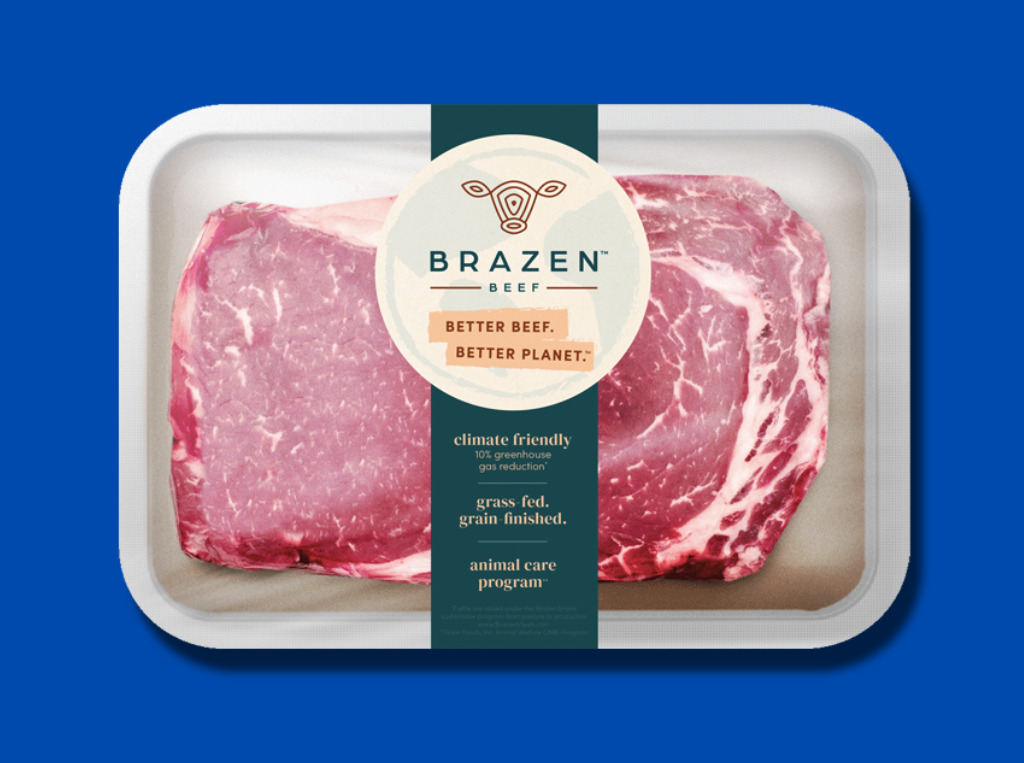
The report found a host of instances where consumer brands engaged in blatant greenwashing. While companies are retracting their ‘carbon neutral’ claims in light of the EU’s clampdown on such marketing, others are taking a more subtle route.
Packaging depicts cows grazing in open, green fields even though these foods are industrially farmed, while words like ‘planet-friendly’ and ‘sustainable future’ populate dairy products. One company claimed to align with the Amazon climate-friendly pledge by removing some air from its (non-recyclable plastic) packaging of beef jerky, one of the most carbon-intensive foods.
But these tactics can be effective. The Changing Markets Foundation polled consumers through YouGov to find that nearly a third of Brits and Germans are willing to pay more for products with sustainability certifications, and over half would do so for animal welfare labels.
Mr Beast and Hot Ones in bed with dairy lobby to target Gen Z
Gen Z is a crucial demographic for meat and dairy producers, given that younger consumers tend to be more climate-conscious. To get to these consumers, companies have enlisted the likes of public relations firm Edelman, which has recently boasted of its success in deterring youngsters from plant-based dairy analogues.
In 2022, as part of a major digital campaign, Dairy Farmers of America collaborated with YouTuber Sean Evans – host of First We Feast’s Hot Ones, where guests eat spicy chicken wings – to promote milk as a safeguard for spicy foods that can “also help keep the planet from getting too hot”. Evans’ content also included a sponsored video on National Farmers Day to promote pro-milk facts.
Similarly, Dairy Management Inc tapped social media influencer Jimmy Donaldson – better known as MrBeast – to promote the National Dairy Checkoff’s #UndeniablyDairy campaign. He was chosen for his popularity with Gen Z to portray how dairy is a “wellness solution” produced in an “environmentally friendly” way.
“Besides social media campaigns to boost the image of meat and dairy, the industry is also funding misinformation that disparages alternative protein, which seems to be having an impact, with some of the largest plant-based meat alternative companies reporting reduced revenue projections in 2023 and falling sales,” Urbancic told Green Queen.
“Media outlets reported sales falling partly due to the ‘uncertainty around the health benefits of plant-based meat’. The chief executive of Beyond Meat highlighted how misinformation has ‘held back sales’.”
Big Meat is targeting schools and teachers
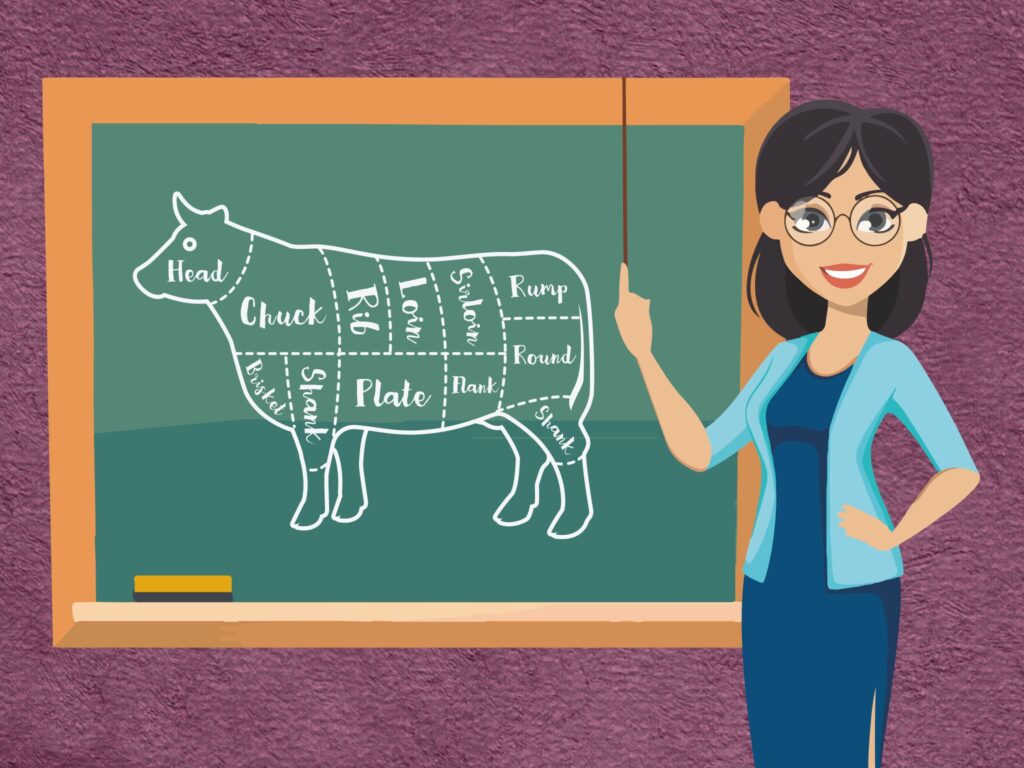
The meat and dairy industry has been targeting young people through schools and teachers to convince them that animal products are necessary for a healthy diet. Dairy groups have pushed educational materials and programs presenting milk as a healthy and necessary choice for students, following years of campaigns to make it an integral part of school meals.
Likewise, Big Beef has been creating and sponsoring educational materials. The American Farm Bureau Federation has been producing lesson plans, resources, in-person events and webinars for the last eight years to sway teachers into boosting beef’s reputation, out of fears that children would be exposed to “misinformation”, “propaganda” and “one-sided or inaccurate” information on the internet.
Net-zero strategies are weak
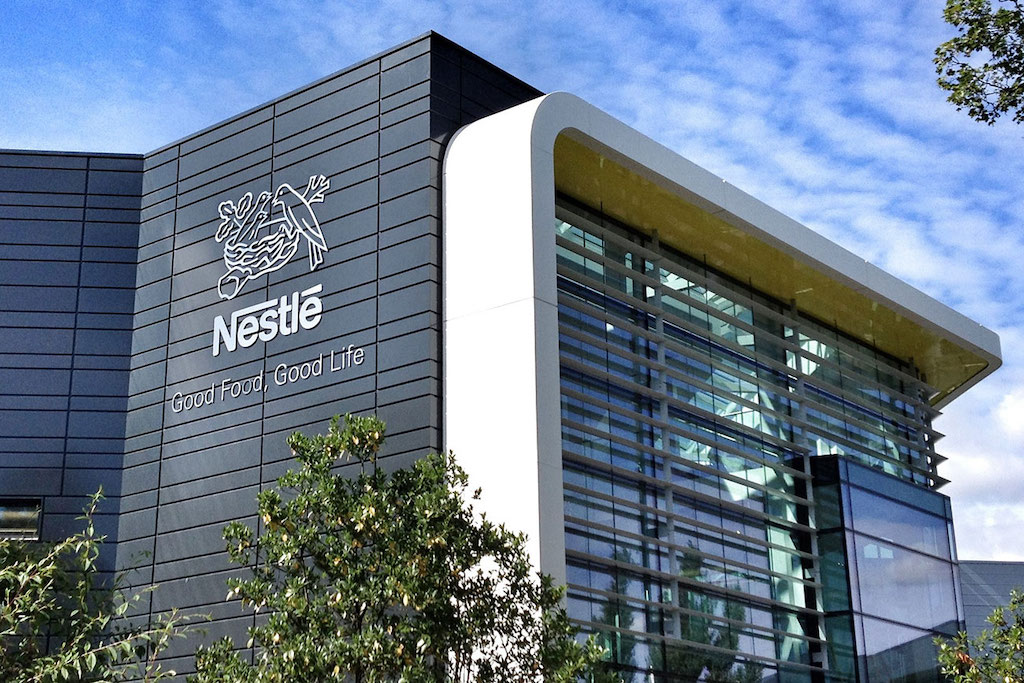
Of the 22 companies analysed, only 15 have or are working on a net-zero target – but none of these are in line with the standard set by the UN’s expert group on net-zero commitments (established in 2022).
While the Science Based Targets Initiative (SBTi) is often touted as a gold standard for corporate climate action, the analysis found that the scheme was failing to accurately assess the companies’ ambitions. For example, Nestlé has SBTi-approved climate targets (with Danone the only other on the list), but other analyses have found that the CPG behemoth’s plans are far from being 1.5˚C compliant and have “low integrity”.
Regenerative agriculture is being misused
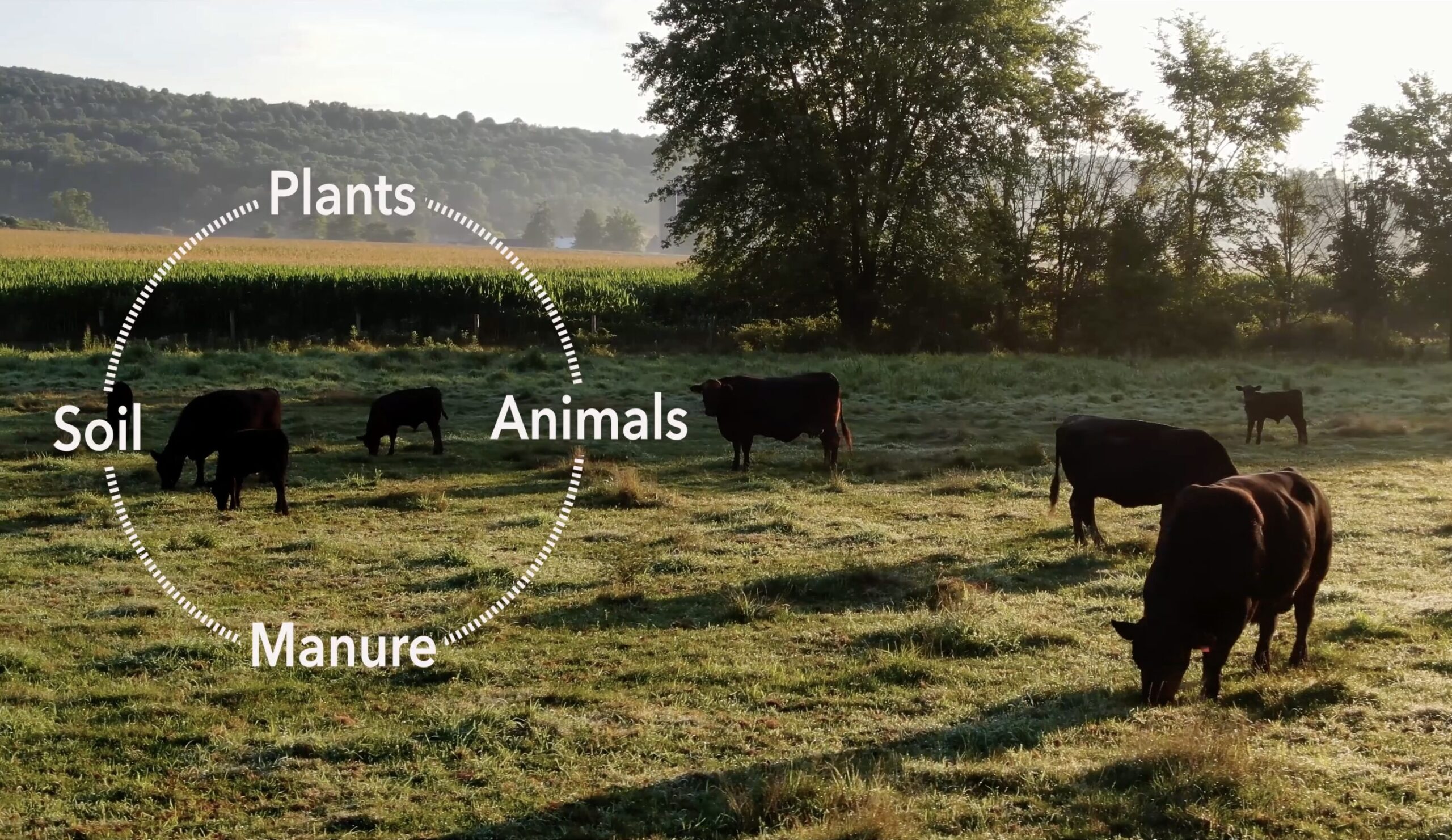
There are many good things about regenerative agriculture, particularly in terms of maintaining biodiversity, soil health and ecosystem preservation. But companies are jumping on this bandwagon to make bold claims to investors and consumers – 12 of the 22 producers talk about regenerative farming in their latest annual and sustainability reports, with Nestlé leading the pack.
The industry likes to talk about this practice in the context of carbon sequestration. But as Urbancic pointed out, the term is “vaguely defined – ‘outcome-based’ without any ‘prescribed practices'”. “This lack of definition has come under fire from investors, therefore companies started to work on their own weak definition of regenerative agriculture, through the Sustainable Agriculture Initiative (SAI) Platform’s ‘Regenerating Together’ initiative.”
But while this framework discusses the involvement of farmers, industry experts, civil societies and NGOs, all 33 of its founding members were large food companies. It also doesn’t mention any need to reduce livestock numbers or methane emissions, instead focusing on nitrogen and energy use.
“This signals that SAI will continue to support an industrial model of farming that prioritises productivity and the interests of Big Ag, while companies can continue to greenwash their polluting practices,” Urbancic said.
They don’t talk about methane
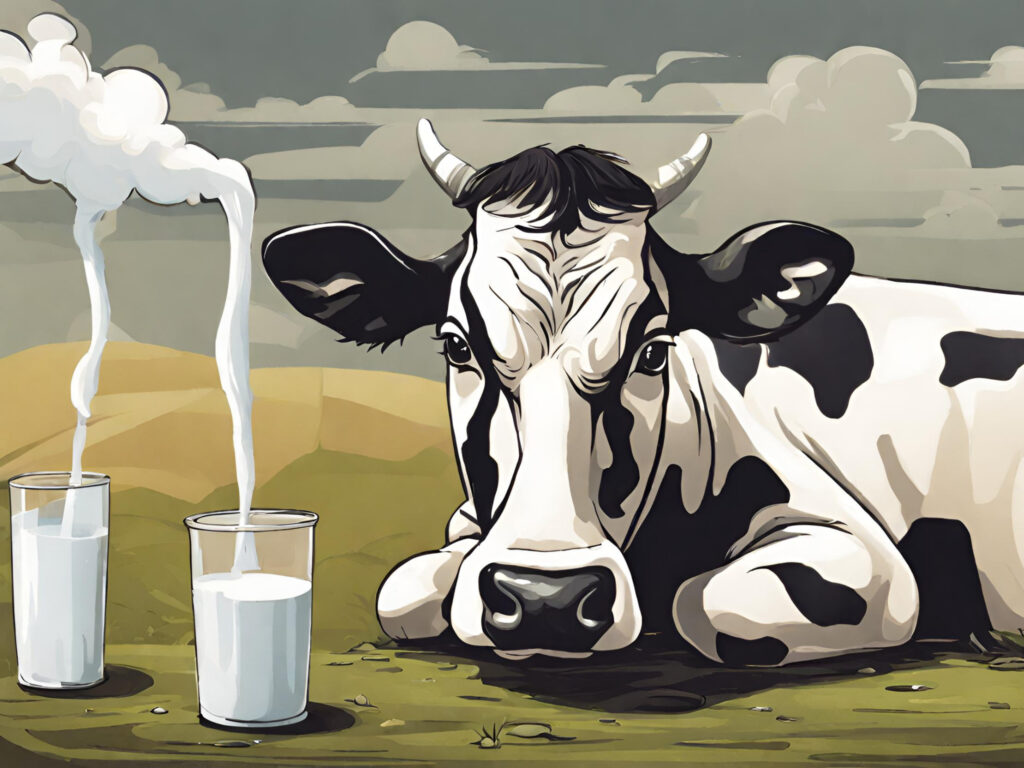
Speaking of, despite methane making up between 25-80% of livestock producers’ emissions, these companies don’t like talking about methane in their sustainability documents and net-zero strategies. Only Danone has a methane target – others prefer to to focus on less material concerns that are easier to fix.
And when methane emissions are mentioned, the spotlight is on fledgling technologies like feed additives, methane-reducing vaccines, selective breeding, and other innovations. None of t these techno-fixes are a guaranteed or proven solution to cutting methane emissions in the timescale required for climate action.
These practices resonate with fossil fuel companies’ promotion of carbon capture and storage and hydrogen, while failing to invest significantly in renewable energies that would ultimately displace coal, oil and gas.
Marketing spend outweighs investment in climate action
None of the 22 companies disclose how much they spend on methane or GHG reduction, but from the data that’s available, it was revealed that only 1% of their revenues goes into R&D (across all segments, not just sustainability). In several cases – such as Fonterra, Nestlé, and Arla – they’re spending more on advertising (portions of which are dedicated to greenwashing) than these efforts.
JBS’s yearly expenditure on R&D for its net-zero efforts equates to just 6.2% of its annual advertising budget, and a mere 0.03% of its 2022 annual revenue.
And instead of putting their own capital in, companies are asking for taxpayer money to foot the bill for emissions reduction and pay farmers for new technologies in this respect.
“The only way we can address this is through government regulation, obliging companies to have legally binding climate targets and to actually come up with credible implementation plans backed up by investments,” said Urbancic. “Voluntary approach has clearly failed.”
Big Ag decimated the EU’s Green Deal
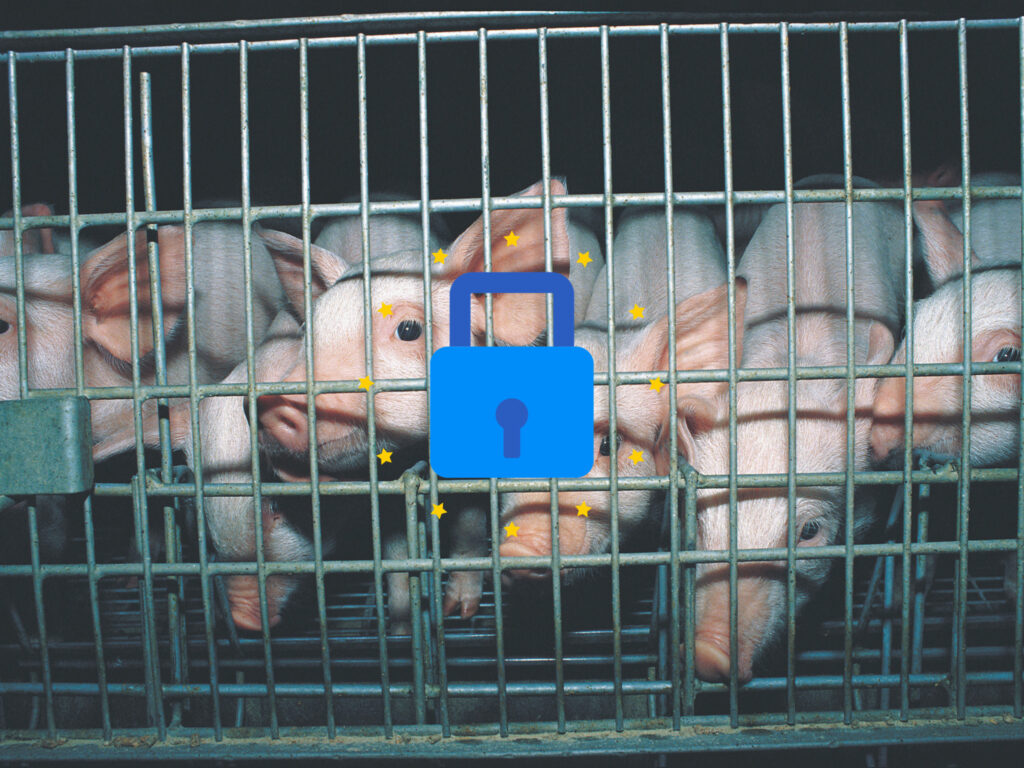
Much has been written about how the agricultural lobby garnered major influence in the EU through certain MEPs to take down its Green Deal, including the Farm to Fork strategy. Under the Common Agriculture Policy, 82% of public subsidies already go to livestock farmers. Between 2014 and 2020, livestock subsidies in the region were 1,200 times higher than what was invested into alternative proteins.
Seven of the 22 companies – Nestlé, Danone, Arla Foods, Lactalis, Cargill, Fonterra and FrieslandCampina – are spending between €1.8M and €2.4M a year to lobby the EU, while the other 15 are represented through other organisations via indirect lobbying.
Numerous MEPs have conflicts of interest in their policymaking, thanks to financial ties to meat and dairy production. Meanwhile, 25 of the most notable trade groups (whose members include Big Meat and Dairy), spend between €9.35M and €11.54M a year in lobbying, with 72 of these lobbyists having access passes to the EU Parliament and 447 top-level meetings with the EU Commission since November 2014.m
“We have seen a number of concessions made to the farm lobbies around the world – just before the elections,” said Urbancic. “But the biggest problem was the European Union, where almost all the policies around food and farming were derailed due to how the farm lobby instrumentalised farmers protests and used its allies inside the EU institutions to advocate for the axing of green policies.
Misinformation fuelled Italy’s cultivated meat ban

In November, Italy became the first (and, so far, only) country to ban cultivated meat, with its far-right ruling party questioning its health credentials and suggesting it hurt culinary traditions. The opposition called the move “ideological propaganda”.
But the Changing Markets Foundation report reveals that this ban – which came alongside restrictions on plant-based labelling too – was built on a steady stream of social media misinformation. It undertook an analysis of online conversations between March 2023 and February 2024, a period covering the first discussions on the ban, the ban itself, and the farmers’ protests that took place in early 2024.
“We uncovered 240,000 misinformation posts during this timeframe, with 1.27 million engagements and 125,000 unique accounts contributing to the discussion,” she added. “Although industry lobby groups like Coldiretti, Italy’s largest farmers union, were very active and supportive of the ban (even calling its opponents “criminals”), our analysis uncovered that over 80% of misinfluencers on X [formerly Twitter] were not based in Italy, but in the US, the UK and Sweden – all predominantly posting in English.
“English-language posts circulated around conspiracy theories like the Great Reset, anti-health claims against cultivated meat, and encouraged other countries – particularly other European countries, the US, UK and Australia – to follow Italy’s example in the ‘fight against the global elite’.
“Conversely, when we examined the top 50 Italian posts by engagement, the narrative shifted noticeably: the emphasis on pro-tradition stands out, anti-health arguments and narratives of fear, uncertainty, and doubt.”
Most of these posts also cited an oft-cited, non-peer-reviewed, livestock-lobby-backed study by UC Davis, which claimed that cultivated meat is 25% worse than beef. It was used in an official document of the European Council, which was submitted by Italy, Austria and France, and supported by 10 other countries. As Urbancic points out, now Hungary has started an offensive against novel foods as part of its presidency.
The US agriculture secretary is a livestock ally

There exists a revolving doors policy in both the EU and the US, where key policy experts come from the industry and return after the end of their stint in public office. Perhaps the most notable example of this is Tom Vilsack, the US agriculture secretary.
Vilsack was the agriculture secretary under Barack Obama’s administration (after being lobbied for by the dairy industry), then became president of lobby group the US Dairy Export Council when Donald Trump took office, and returned to the White House in his previous role under Joe Biden.
In the US, eight of the 22 companies – Tyson Foods, Cargill, Fonterra, JBS, Danone, Nestlé, Dairy Farmers of America, and WH Group – engaged in lobbying in 2022, spending $7.22M and hiring 15 lobby firms million lobbying the US in 2022 and hired a total of 15 lobby firms.
Additionally, extensive political donations, industry domination of official advisory groups, and the revolving doors have helped these companies influence some of the biggest policy actions affecting the sector, such as the Global Methane Pledge and the Inflation Reduction Act. These companies also rallied against an imaginary tax on cows, which was never actually proposed.
Governments should redirect livestock subsidies to plant-based

In its list of recommendations for governments, the Changing Markets Foundation calls for national methane action plans, the inclusion of food systems transformation in the next update of nationally determined contributions (NDCs) to the 1.5°C target, and mandating meat and dairy producers to establish science-based emissions targets (including scope 3).
Policymakers should also incorporate sustainability into national dietary guidelines, impose targets to reduce food waste and meat sales, redirect meat and dairy subsidies to support plant-based production, and promote R&D for the uptake of plant-based whole foods and meat and dairy analogues.
“[Misinformation] will be a difficult problem to solve, but I think we need much more awareness and analysis with regard to the extent and nature of misinformation in the food sector,” stated Urbancic. “Very little investigative work of journalists or philanthropy funding has gone towards exposing [the] topic.”
Speaking at the IFT First trade event this week, Bruce Friedrich, president of alternative protein think tank the Good Food Institute, said he expects the cultivated meat bans in Florida and Alabama to be “quietly repealed”, at least “before they’re meaningful”. He labelled it as “no big loss”, as companies don’t need to sell in these states anytime soon.
But Urbancic disagreed. “I think the Big Ag has only got started when it comes to bans and restrictions on its competition,” she said. “Without a very smart and well-resourced counteroffensive, the troubles for the alternative protein industry could continue.”
Big Meat and Dairy need to embrace alternative protein and methane reduction
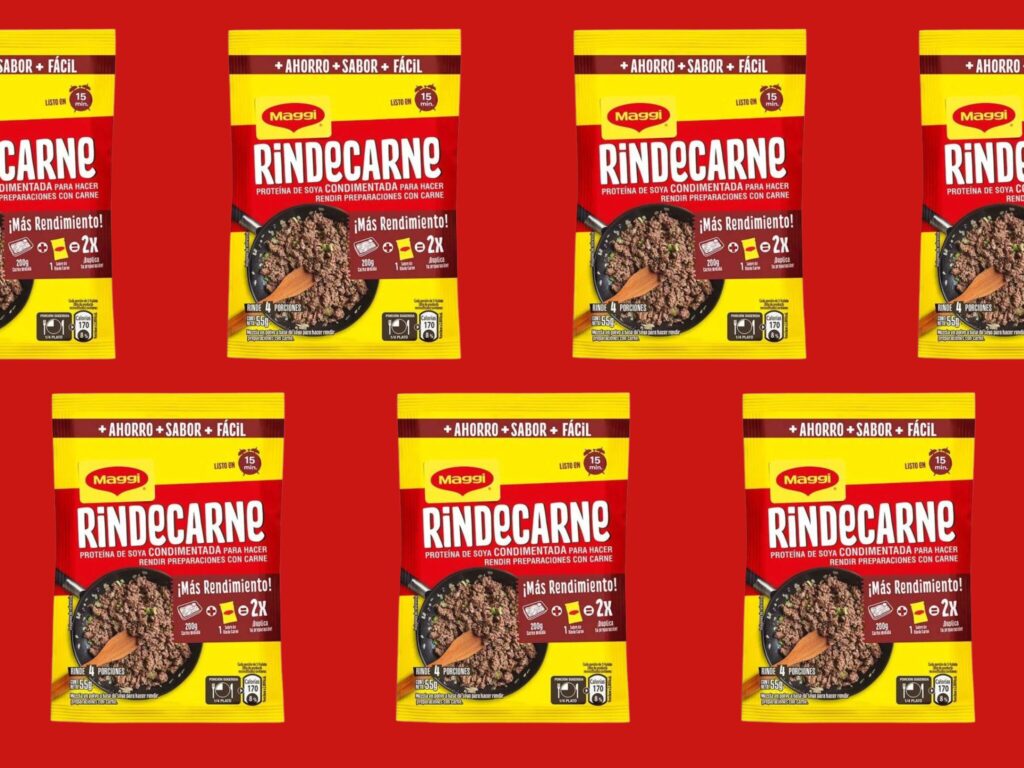
Since companies are responsible for the lion’s share of the food system’s environmental impact, they need to significantly change their direction. The report recommends setting short- and long-term climate goals in line with 1.5°C, alongside an ambitious methane target. These plans should be centred on absolute emissions reduction, with a limited focus on carbon sequestration. Carbon offsetting, meanwhile, should be banned.
Companies must also disclose lobbying expenditures, and support progressive policies like methane and carbon taxes. Moreover, meat and dairy giants should set clear trajectories for reducing livestock numbers and shifting to lower animal production, instead investing in and producing more alternative proteins.
The public can hold companies to account
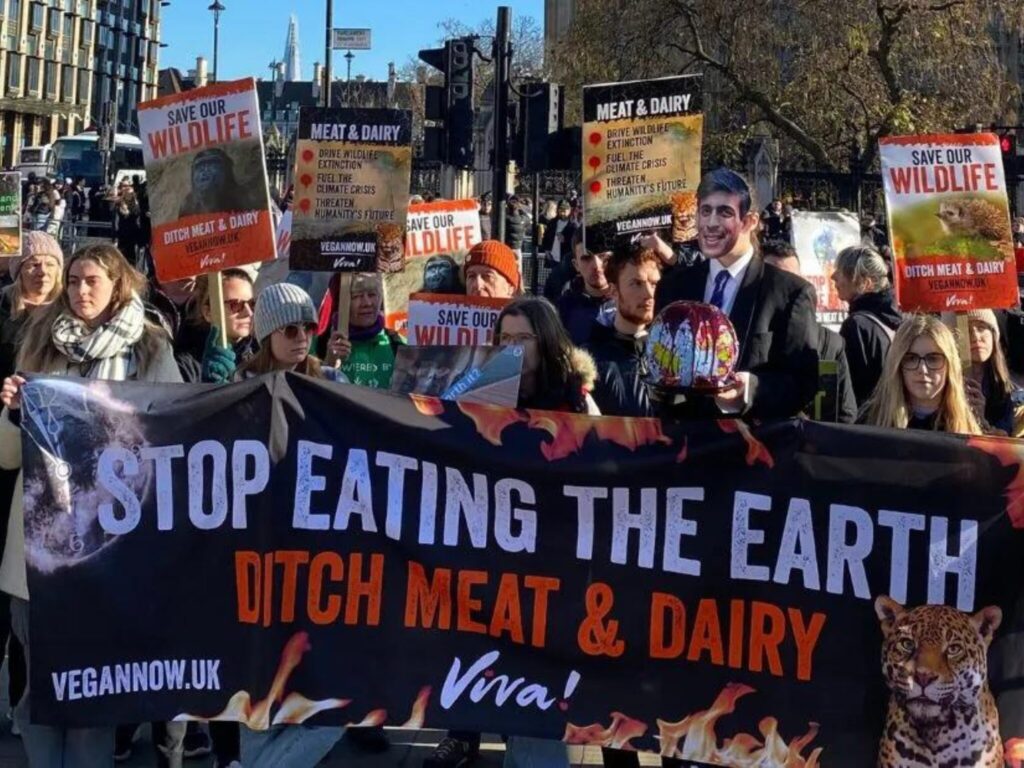
As for consumers, cutting back on meat and dairy on a personal level and shifting to healthier, plant-based foods will pay considerable dividends. Research has shown that even replacing half of your meat consumption with vegan analogues can cut emissions by 31%, while practically halting deforestation.
Members of the public can also support small organic farmers through produce box schemes to up fruit and vegetable consumption, reduce waste and enhance climate impact.
Finally, consumers must put pressure on food companies to implement robust climate targets, which include decreasing meat and dairy sales and offering more plant-based options. Write to companies, share petitions, and showcase your purchasing power to hold them to account.



